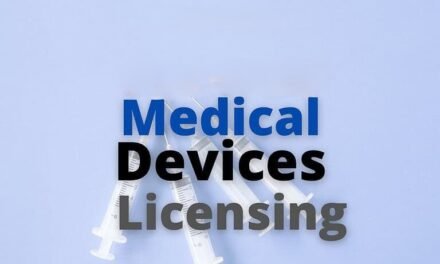
Enable the government to establish medical device testing in laboratories?

Establishing government-backed medical device testing laboratories is a crucial step toward enhancing the quality and safety of medical devices, fostering innovation, and ensuring regulatory compliance within the industry. Here’s how the government can play an instrumental role in setting up such laboratories:
1. Need for Government-Established Medical Device Testing Laboratories:
- Ensuring Safety and Quality: Testing laboratories can verify whether medical devices meet required safety standards, ensuring they are safe for use in healthcare settings and that they do not pose risks to patients.
- Supporting Regulatory Compliance: With robust testing facilities, manufacturers can get their products tested in compliance with local and international standards such as ISO 13485, IEC 60601, and other relevant guidelines.
- Promoting Innovation: These labs can also serve as innovation hubs, helping manufacturers test new technologies and providing feedback for improvements, thus fostering the development of new, safer, and more effective medical devices.
2. Role of Government in Establishing Medical Device Testing Labs:
- Regulatory Support: The government can establish standardized testing protocols and guidelines to ensure that the labs comply with the Indian Medical Device Rules (2017) and other regulatory frameworks such as those by the FDA (U.S.) or CE Mark (EU).
- By aligning national testing standards with international norms, the government can facilitate the global acceptance of Indian-manufactured devices.
- Infrastructure Development: The government can invest in establishing state-of-the-art testing facilities that cover different aspects of medical devices, including biocompatibility, electrical safety, performance testing, and sterility testing.
- These laboratories should have access to advanced technologies like robotic testing systems, 3D imaging, and simulation platforms to test complex devices, such as robotic surgery instruments, implants, and wearable health devices.
- Collaboration with Academia and Industry: Partnering with universities, research institutes, and medical device companies can help establish academic-industry collaborations to enhance the laboratory’s capabilities.
- Specialized labs can be created in partnership with engineering colleges and medical institutions to provide comprehensive support for R&D and testing.
- International Certification: Government-backed testing labs can seek international accreditation, such as from the National Accreditation Board for Testing and Calibration Laboratories (NABL) in India or ISO/IEC 17025 certification, making them capable of providing globally recognized results.
3. Funding and Investment in Testing Infrastructure:
- Public-Private Partnerships (PPP): The government can encourage PPP models where the private sector invests in establishing labs while benefiting from government incentives and regulatory support.
- Such partnerships can also facilitate shared resources, expertise, and funding, making the testing process more affordable for smaller manufacturers.
- Subsidies and Grants: The government can provide financial incentives like grants, tax benefits, or subsidies for the setup and operation of medical device testing labs. This would help ease the financial burden on new and emerging companies.
- Programs like Atmanirbhar Bharat and PLI (Production Linked Incentive) schemes could be leveraged for supporting the infrastructure setup and operational expenses of these labs.
4. Enhancing Testing for Specific Medical Device Categories:
- Diagnostics and Imaging: Establishing specialized labs for diagnostic equipment, such as X-ray, MRI, and ultrasound devices, to ensure that these devices perform to international standards.
- In-vitro Diagnostic (IVD) Devices: Labs dedicated to testing IVD devices, such as blood glucose monitors, pregnancy tests, and genetic tests, would be essential to monitor their accuracy and reliability.
- Implants and Prosthetics: Testing labs can specialize in testing the biocompatibility, durability, and performance of implants, such as orthopedic implants, dental implants, and prosthetic limbs.
- Wearable Devices and Telemedicine: With the rise of wearable health devices, the government could set up dedicated testing labs to assess the functionality, accuracy, and security of IoT-enabled medical devices.
5. Establishing Centers of Excellence (CoE):
- The government can create Centers of Excellence (CoEs) within laboratories, where specific fields of medical device testing are prioritized. These centers could focus on emerging technologies like AI-driven medical devices, robotic surgery systems, digital health platforms, and smart wearables.
- These centers could also function as training hubs for professionals in the medical device testing sector.
6. Ensuring Access for Domestic and International Manufacturers:
- Affordable Testing for SMEs: Smaller manufacturers, especially in developing markets like India, can benefit from government-backed testing labs that offer affordable and accessible testing services to ensure they meet global standards.
- Export Facilitation: Government-run testing labs that provide internationally recognized certification can assist in ensuring that Indian medical devices are export-ready. This is especially important for compliance with standards required by countries such as the U.S., Europe, and Japan.
7. Regulatory Framework for Lab Operations:
- Standardized Accreditation: Government-backed testing labs should be subject to regular audits and quality checks to ensure they remain compliant with international standards.
- The National Accreditation Board for Testing and Calibration Laboratories (NABL) or International Organization for Standardization (ISO) could be responsible for accrediting such laboratories to ensure their credibility.
- Transparency and Integrity: The government can introduce clear guidelines and frameworks for reporting, analysis, and testing outcomes to maintain high standards of transparency and integrity in the testing process.
8. Skill Development and Training:
- Training and Certification: The government can collaborate with technical institutions to offer training programs on the latest medical device testing methods, including ISO standards, regulatory requirements, and international best practices.
- Industry experts could be brought in to train testing professionals, ensuring high standards are maintained across the industry.
The establishment of government-backed medical device testing laboratories is essential for the growth of the medical device industry, both domestically and globally. It ensures that medical devices are safe, effective, and compliant with regulatory standards, thereby improving healthcare outcomes. By providing state-of-the-art facilities, financial support, and training programs, the government can help accelerate innovation and promote quality standards, leading to a self-reliant medical device sector in India and strengthening the export capabilities of the nation’s medical device industry.




























